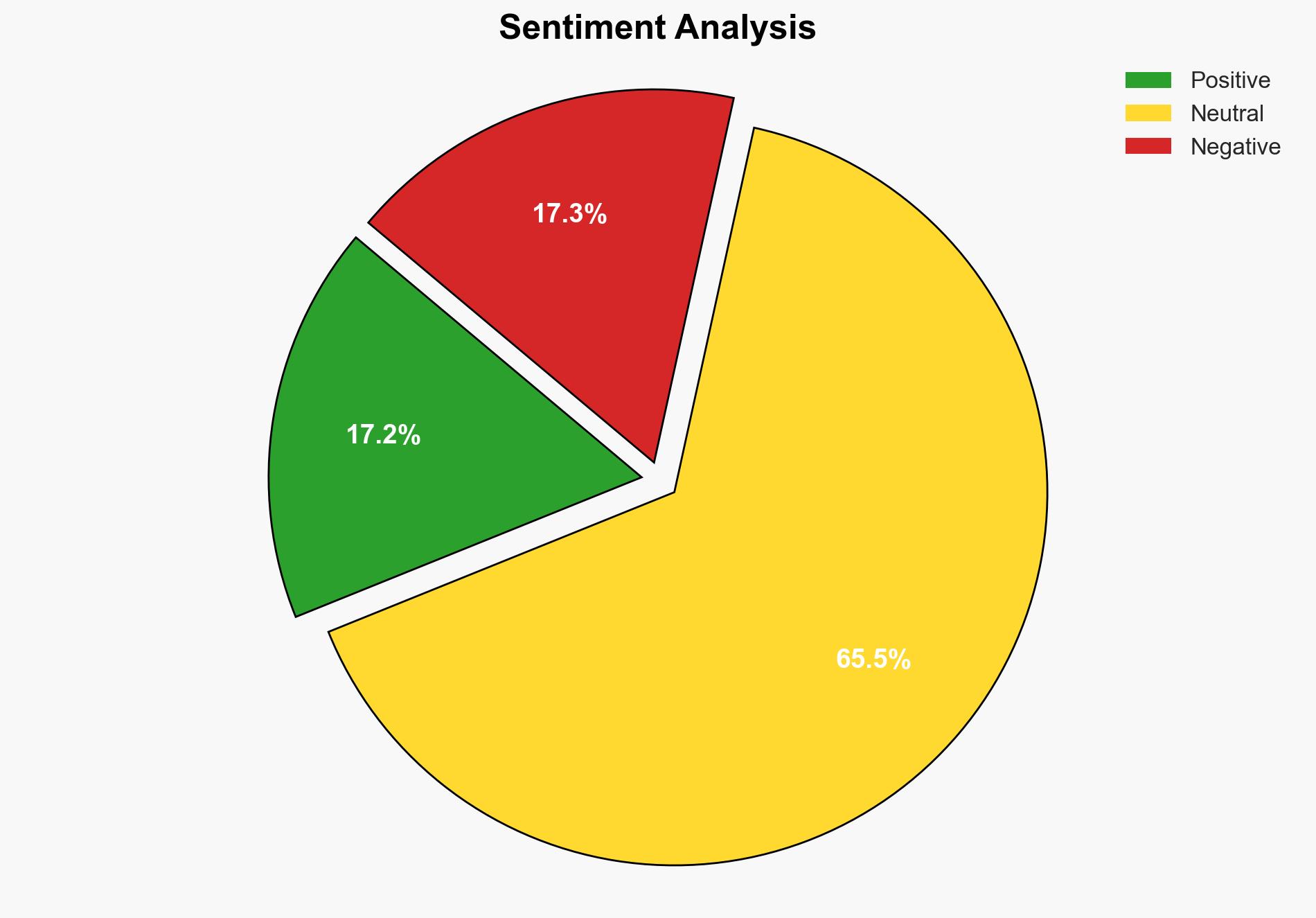Donald Trump Loosens Constraints on Airstrikes Military Raids Report – Newsweek
Published on: 2025-02-27
Intelligence Report: Donald Trump Loosens Constraints on Airstrikes Military Raids Report – Newsweek
1. BLUF (Bottom Line Up Front)
The recent policy shift by Donald Trump to lift restrictions on military commanders, granting them greater authority to approve airstrikes and special operations, is aimed at enhancing rapid response capabilities in combat zones. This move is intended to streamline military decision-making and increase the effectiveness of counterterrorism operations. However, it raises concerns about potential increases in civilian casualties and broader implications for military engagement in traditional combat zones.
2. Detailed Analysis
The following structured analytic techniques have been applied for this analysis:
SWOT Analysis
Strengths: Enhanced flexibility for military commanders; potential for quicker response to emerging threats.
Weaknesses: Increased risk of civilian casualties; potential for overreach in military operations.
Opportunities: Improved counterterrorism effectiveness; potential to disrupt extremist networks.
Threats: Escalation of conflicts in traditional combat zones; backlash from international communities.
Cross-Impact Matrix
The policy shift may influence regional dynamics, particularly in areas like Africa and the Middle East, where increased military operations could destabilize neighboring regions. The potential for increased military engagement may also impact diplomatic relations with countries involved in these areas.
Scenario Generation
Best-Case Scenario: The policy leads to significant disruptions of extremist networks with minimal civilian casualties, enhancing regional stability.
Worst-Case Scenario: Increased military operations lead to high civilian casualties, fueling anti-American sentiment and destabilizing regions further.
Most Likely Scenario: A moderate increase in military effectiveness with some collateral damage, leading to mixed outcomes in regional stability.
3. Implications and Strategic Risks
The policy shift poses significant risks to national security and regional stability. The potential for increased civilian casualties may damage international relations and fuel extremist recruitment. Additionally, the expanded military engagement could strain resources and lead to unintended geopolitical consequences.
4. Recommendations and Outlook
Recommendations:
- Implement stricter oversight mechanisms to mitigate the risk of civilian casualties.
- Enhance intelligence-sharing with allies to improve the precision of military operations.
- Develop contingency plans to address potential diplomatic fallout from increased military actions.
Outlook:
Best-Case Outcome: Enhanced military operations successfully disrupt extremist networks with minimal collateral damage.
Worst-Case Outcome: Escalated conflicts and civilian casualties lead to international condemnation and regional instability.
Most Likely Outcome: A balance between increased military effectiveness and manageable diplomatic challenges.
5. Key Individuals and Entities
The report mentions significant individuals such as Donald Trump, Pete Hegseth, Nathan Sale, Andrew Borene, and Lucas Webber. These individuals are involved in or have commented on the policy shift and its implications.





